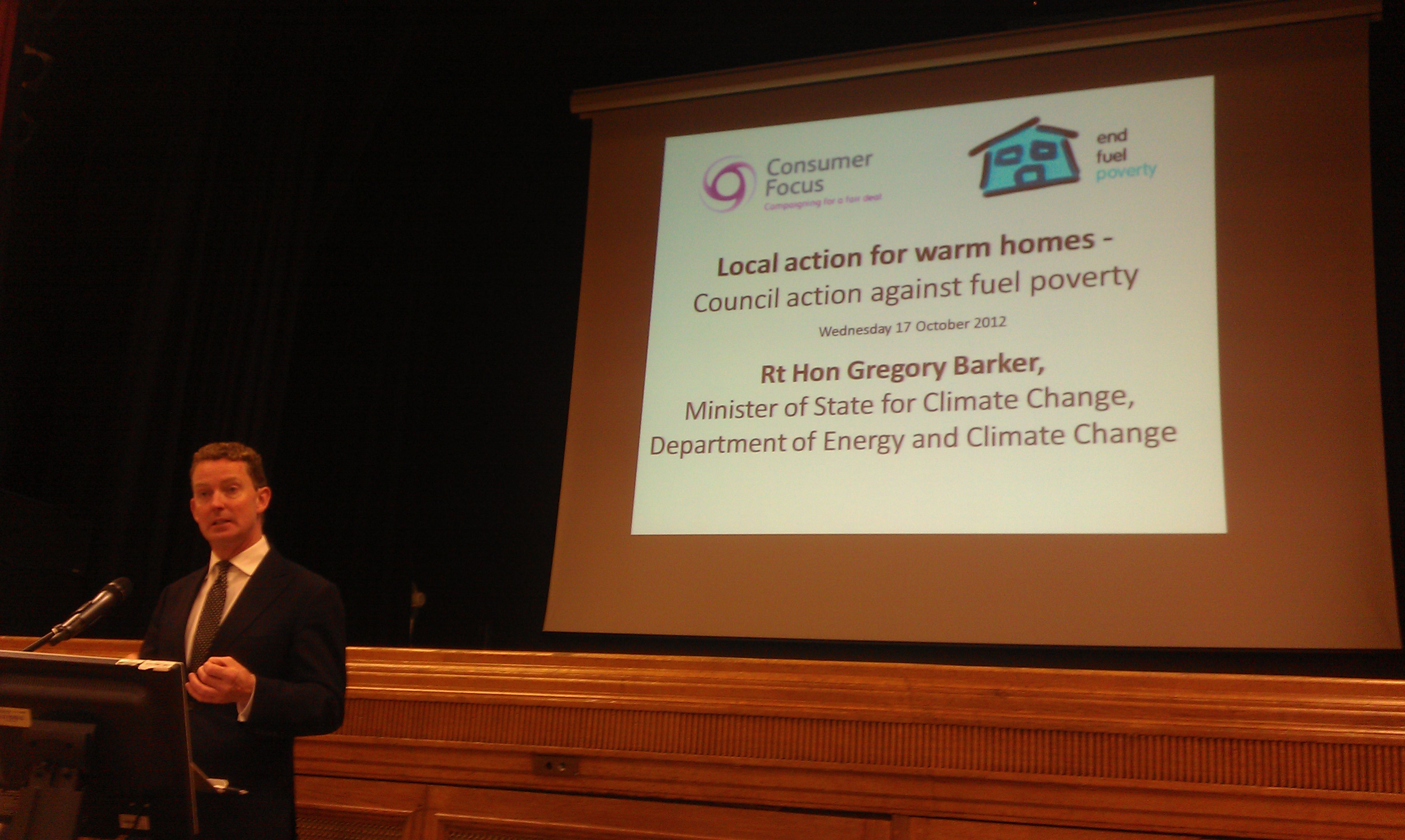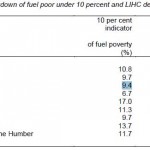November 2012: A recent Parliamentary Question has provided an update, of sorts, on the DECC-Local Government MoU. Firstly – a quick re-cap. On 9 March 2011 Chris Huhne, the former Secretary of State for Energy and Climate Change, signed a “ground-breaking Memorandum of Understanding (MOU) designed to recognise the pivotal role local councils have in tackling climate change.” See the full news release issued at the time here. The MoU itself can be downloaded here.
The MoU set out how DECC and the Local Government (LG) Group would work together to help and encourage all councils to take firm action to:
- reduce the carbon emissions from their own estate and operations
- reduce carbon emissions from homes, businesses and transport infrastructure, creating more, appropriate renewable energy generation, using council influence and powers; and
- participate in national carbon reduction initiatives at the local level, particularly the roll out of the Green Deal, smart metering and renewable energy deployment.
The MoU was to be underpinned by a number of actions including a management board on which DECC and the LG Group will be represented and an action plan that would take forward specific actions outlined in the LG Group ‘offer’ to DECC.
Though there has been some movement in DECC’s relationship with local government this year, specifically the publication of revised HECA guidance, and the commissioning of the Committee on Climate Change to provide guidance for local authorities (also see here) on reducing carbon emissions, there has been next to no mention of the MoU. It was therefore useful that Shadow Energy Minister Luciana Berger MP recently raised the issue of progress on some specific actions raised in the MoU:
Luciana Berger: To ask the Secretary of State for Energy and Climate Change (1) with reference to his Department’s Memorandum of Understanding with the Local Government Group, what steps his Department is taking to ensure that its policy-making process takes account of the role of local councils in achieving or developing policy; [126591]
(2) when his Department plans to publish a review of the Memorandum of Understanding between his Department and the Local Government Group; [126592]
(3) whether he has met senior political representatives from the Local Government Group of the Local Government Association to review the Memorandum of Understanding, the Annual Report and council action on climate change set out in the Memorandum of Understanding between his Department and the Local Government Group; [126593]
(4) which senior civil servants from his Department have been assigned to work with the Local Government Association on steps to ensure that the milestones in Annex A of the Memorandum of Understanding between his Department and the Local Government Group are met; [126596]
(5) what meetings his Department has facilitated between the Local Government Group and other Government departments as set out in the Memorandum of Understanding between his Department and the Local Government Group. [126597]
Gregory Barker: My officials and I hold discussions with the Local Government Association (LGA) on a range of policy issues of mutual interest, including on the memorandum of understanding (MoU).
To my knowledge, the Department has not facilitated meetings between the LGA and other Government Departments.
I am currently discussing with the LGA the report of progress against the MoU. This work is led in DECC by officials from the Energy Efficiency Deployment Office.
A further PQ on another MoU action elicited a similar disappointing response:
Luciana Berger: To ask the Secretary of State for Energy and Climate Change (1) who sits on his Department’s Devolved, Sub-National Reform and Local Carbon Accountability Project Board; [126594]
(2) how many times his Department’s Devolved, Sub-National Reform and Local Carbon Accountability Project Board has met since March 2011. [126595]
Gregory Barker: The Devolved, Sub-National Reform and Local Carbon Accountability Project Board membership comprised officials from DECC, the Department of Communities and Local Government, HM Treasury, Department of Business, Innovation and Skills and the Local Government Association.
There have been no meetings of the board since March 2011.
A final (to date) attempt by Ms Berger to find out how DECC was working with local government on energy issues didn’t help either.
A speech by Ed Davey to the LGA earlier this year highlighted the importance of local authorities stating “the more I do the job, it’s clearer that national government can’t deliver on its energy and climate change policy without local government.” It’s hence a great shame that this unique relationship on energy and climate issues between central and local government has been all but abandoned.





